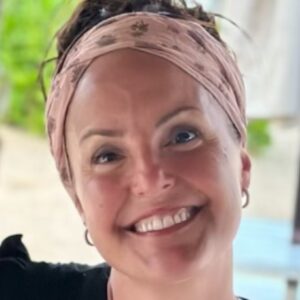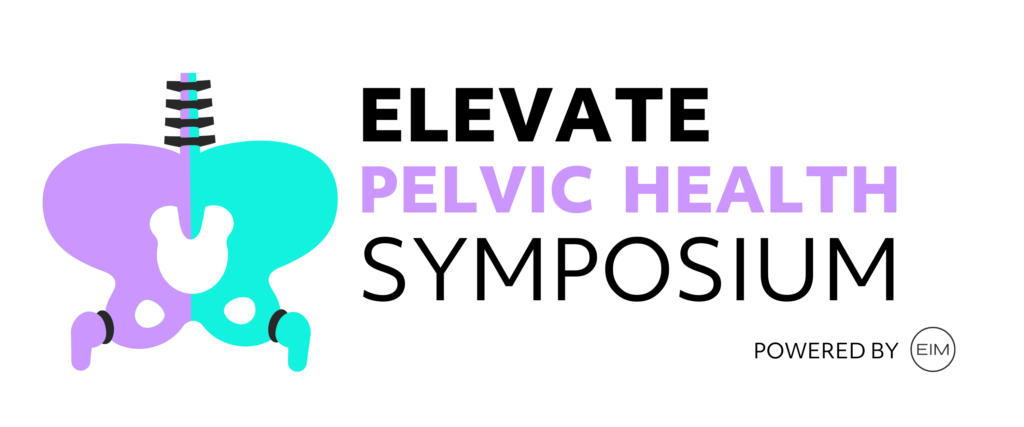-
 Nicole Cozean, PT, DPT, WCS
Nicole Cozean, PT, DPT, WCS -
 Michelle Laging, PT, DPT, CPPC, CEDS-C
Michelle Laging, PT, DPT, CPPC, CEDS-C -
 Talli Rosenbaum, MSc, CST
Talli Rosenbaum, MSc, CST -
 Carrie Dendtler, PT, DPT, PHC, IBCLC
Carrie Dendtler, PT, DPT, PHC, IBCLC -
 Courtney Barnes, MPH, MD, FACOG
Courtney Barnes, MPH, MD, FACOG -
 Antony Lo, APA Musculoskeletal Physiotherapist, Master in Manual Therapy, B.App.Sc. (Physio)
Antony Lo, APA Musculoskeletal Physiotherapist, Master in Manual Therapy, B.App.Sc. (Physio) -
 Veronica Riera-Gilley, PharmD, BCGP, CFMP, CYT-200
Veronica Riera-Gilley, PharmD, BCGP, CFMP, CYT-200 -
 Lori Mize, PT, DPT, WCS
Lori Mize, PT, DPT, WCS -
 A.J. Steele, PsyD
A.J. Steele, PsyD -
 Kathryn Richardson, MOT, OTR/L, TPS, FPS
Kathryn Richardson, MOT, OTR/L, TPS, FPS
Event Details
-
Faculty: Jennifer Stone
-
Faculty: Lori Mize
Session Details:
This educational session delves into the pivotal role of pelvic health therapists in the management of pessaries for patients with pelvic organ prolapse (POP). While not a training on pessary fitting, it will provide an in-depth exploration of patient education and specific management strategies to enhance patient outcomes. Attendees will gain valuable insights to incorporate into their practice, ultimately improving the management of POP.
-
Faculty: Nicole Cozean
Session Details:
An upregulated nervous system and a hypervigilant stress response is a common presentation of any client with a pelvic health concern. This presentation will help the pelvic health rehab clinician expand their clinical tool-kit by learning practical ways to help to activate the parasympathetic nervous system beyond the traditional deep breathing exercise we have come to rely on. A focus will be placed on both patient-led and practitioner-led treatment interventions that can benefit any patient.
-
Faculty: Michelle Laging
Session Details:
Individuals in eating disorder recovery often experience gastrointestinal distress. Additionally, in tandem with GI distress, pelvic pain/dysfunction may be present, and all can become a hindrance to progress. Seeking out treatment from a knowledgeable, HAES-aligned, pelvic health rehabilitation specialist can not only offer validation for normalcy of symptoms but provide treatment that aligns with the goals of recovery along with alleviation of symptoms.
-
Faculty: Talli Rosenbaum
Session Details:
Physical therapists have a crucial role in counseling individuals and couples with sexual problems. This includes providing psychoeducation and specific suggestions. However, avoidant or high conflict couples dynamics, conflicting attachment styles, intimacy difficulties, individual or relational trauma, neurodivergence, relational hierarchies, social, and cultural factors may undermine the recommended interventions and the results. This presentation will discuss best practice ideas for physical therapists working with couples, with an emphasis on traditional and faith based populations.
-
-
Faculty: Veronica Riera-Gilley
Session Details:
In ‘Just Eat It,’ we delve into the transformative power of food as medicine, equipping practitioners with practical strategies to educate and empower patients in making sustainable dietary changes to enhance patient outcomes.
-
Faculty: Carrie Dendtler
Session Details:
- Describe common breastfeeding challenges that patients may experience.
- Discuss normal breastfeeding benefits and course.
- Develop a plan to help support lactation.
-
Faculty: Courtney Barnes
Session Details:
During this session, Dr. Courtney Barnes will cover the role of OB/GYN care in the diagnosis, treatment, and cause of pelvic floor dysfunction. She will review the anatomic support system of the female pelvic organs and overview how OB/GYN surgery may impact those structures, potentially resulting in dysfunction of the pelvis. She will discuss common OB/GYN surgical approaches and techniques, including what each is intended to address and the potential impact on physiology of each surgical procedure.
-
Faculty: Antony Lo
Session Details:
This session will cover the key principles and research to determine how lifting affects your clients with pelvic floor concerns. There will be a mix of theory and video analysis. By the end of the session, you will have some simple questions to ask your athletes, some simple principles to follow, and some practical assessments you can use during your sessions.
-
Faculty: A.J. Steele
Session Details:
Compassion fatigue impacts health care providers across all disciplines. Learning to identify the symptoms and develop resiliency skills can improve providers’ functioning both personally and professionally.
-
Faculty: Kathryn Richardson
Session Details:
Body Schema provides a blueprint for how we perceive, not only our physical selves, but the world around us through a collection of processes that actively organize and modify incoming information. Body schema is comprised of multiple “maps”, including those of body surface, musculature, intentions, potential for action, and even one to track and emulate the actions and intentions of others. At the cortical level, spatial encoding draws on tactile and visual input to create a 3-D representation of the self. But our embodied self is also shaped by experience, practice, maturation, as well as acute and chronic disease states.
The plasticity of body schema allows us to optimize how we interface with our world under the dynamic conditions of the human experience. Disruptions in body schema are well documented in persons with chronic neurocognitive and pain conditions, as the “well intentioned” neuroplastic adaptive capability of our brain goes awry. So how do we recognize and treat this moving target in tandem to traditional therapy?
In this course we will explore:
- Neurophysiological underpinnings of the “sense of self””
- How constant reappraisal leads to adaptive and maladaptive responses
- Consequences of maladaptive cortical reorganization
- Tools to identify body schema distortions in your patients
- Adjunctive treatment strategies to complement your existing home programs in treating patients with comorbid body schema distortions
ALL TIMES LISTED ARE IN CENTRAL STANDARD TIME (CST)
Attendees will have access to recorded sessions for up to 6 months if they are unable to attend part or all of the live event.
The conference provides 10.4 contact hours
Presenters
January 25th, 2025 | Register Now!
Pricing Information | $300
All registrants will have access to both live sessions and recordings for 6-months.
If you have questions or have trouble registering, please contact us here.
